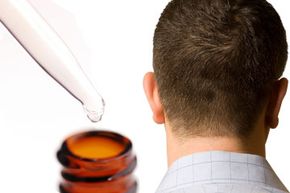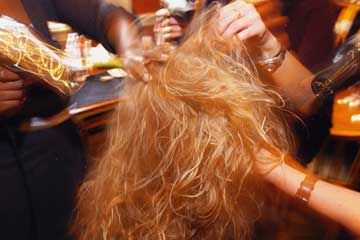If you're plagued by a dry, itchy scalp but are chemical-conscious when it comes to what you put in or on your body, tea tree oil may be your remedy of choice. This solution has been used for hundreds of years as an antiseptic, antibiotic and antifungal treatment, and it's a natural alternative for treating scalp problems [source: Mayo Clinic].
Tea tree oil comes from the leaves of the Australian tea tree, the Melaleuca alternifolia [source: Mayo Clinic]. It's sometimes called melaleuca oil, and it comes in a variety of forms, including gels, creams, ointments, shampoos, conditioners, toothpastes and mouthwashes. You can usually find products made with tea tree oil at natural food stores and at some pharmacies.
Advertisement
When it comes to common scalp problems like hair loss, dry skin, dandruff and head lice, tea tree oil may be an effective natural alternative to harsh chemicals. In shampoo form, it may be effective in reducing dandruff, unclogging hair follicles and clearing up bacterial and fungal infections [source: Olsen]. However, even though Australia's Aboriginal people have used tea tree oil for centuries, studies that have tested its effectiveness for treating dandruff and other scalp conditions are inconclusive [source: WebMD].
If you think tea tree oil may be your cup of tea for treating scalp problems, try a shampoo or other product that's 5 percent tea tree oil and use it daily [source: Slawson]. However, because tea tree oil is largely untested as a treatment for scalp problems, pay close attention to possible side effects. It's been known to cause allergic reactions ranging from mild irritation to severe redness, itching and blistering. Tea tree oil may also worsen skin conditions like eczema [source: WebMD]. Keep in mind that you should only use tea tree oil topically -- it's not meant to be swallowed and may be toxic if ingested [source: Mayo Clinic].
There's still much research to be done on tea tree oil's effectiveness in treating scalp problems, but if you'd like to learn more about this natural alternative, check out the links on the next page.
Advertisement

